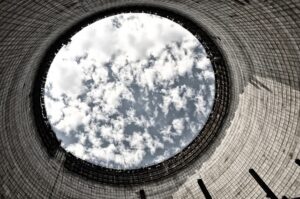Selecting corrosion-resistant materials like stainless steel, aluminum, epoxy linings, and polyurethanes for water heater tanks enhances durability and performance. These materials overcome traditional plastic or metal issues, combating heated water, mineral deposits, and sediment buildup. Proper installation, maintenance (including regular cleaning, tank capacity management), and ventilation extend the lifespan of these tanks, ensuring efficient hot water storage for residential users.
“Discover the secret to a longer-lasting water heater with durable, corrosion-resistant tanks. In this comprehensive guide, we explore the benefits of constructing water heater tanks from high-durability materials and how it translates into increased longevity and improved performance.
From choosing the right materials to installation and maintenance tips, learn what it takes to protect your water heater tank from corrosion. Enhance your knowledge on sustainable plumbing practices and extend the life of your water heater.”
- Choosing Corrosion-Resistant Materials for Longevity
- Benefits of Durable Water Heater Tanks
- Installation and Maintenance Tips for Corrosion Resistance
Choosing Corrosion-Resistant Materials for Longevity

When crafting a durable water heater tank, selecting corrosion-resistant materials is paramount for ensuring longevity and optimal performance. In the case of water heater tanks, materials like stainless steel, aluminum, and linings made from epoxy or polyurethanes offer superior resistance to rust and decay, often outlasting traditional plastic or metal alternatives. These materials not only withstand the corrosive effects of heated water but also resist damage from mineral deposits and sediment buildup, common issues in residential water tanks and tank water heating systems.
Choosing between gas tank heaters, electric tank heaters, or storage water heaters involves considering the specific material composition that aligns with your desired tank capacity and hot water storage needs. For example, larger hot water storage systems designed for commercial or industrial use might employ more robust materials to handle higher pressures and extended periods of operation. Conversely, smaller residential water tanks, like those found in electric tank heaters or gas tank heaters, often utilize lighter-gauge but highly resistant materials to ensure efficiency without compromising durability, catering to the specific demands of household hot water requirements.
Benefits of Durable Water Heater Tanks

Durable water heater tanks constructed from corrosion-resistant materials offer numerous benefits that significantly enhance their longevity and performance, setting them apart from traditional water heaters. Firstly, these advanced tanks are designed to withstand extreme temperatures and pressure variations, ensuring consistent hot water supply without succumbing to rust or leakage. This feature not only prolongs the lifespan of the tank but also reduces the need for frequent replacements, making them a cost-effective choice in the long run.
Moreover, corrosion-resistant materials used in durable water heater tanks provide superior insulation properties, leading to more efficient tank water heating. This means your hot water is maintained at optimal temperatures for longer periods, reducing energy wastage and lowering utility bills. In addition, these tanks are often equipped with modern safety features, such as automatic pressure relief mechanisms and advanced temperature controls, ensuring a secure and reliable hot water storage experience for residential users.
Installation and Maintenance Tips for Corrosion Resistance

When installing a durable water heater tank made from corrosion-resistant materials, proper placement and preparation are key to maintaining its resistance. Position the tank in an area free from extreme temperature fluctuations and direct exposure to corrosive substances. Ensure adequate ventilation to prevent the buildup of moisture, which can accelerate corrosion. Using the recommended materials for connections and fittings further enhances the tank’s longevity.
Regular maintenance is equally crucial for optimal performance and corrosion prevention. Regularly inspect the tank for any signs of damage or leaks. Clean the tank periodically to remove sediment buildup, ensuring efficient heating and preventing corrosion from internal sources. For storage water heaters, consider draining and flushing during periods of prolonged inactivity to minimize the risk of rust formation. Keep an eye on the tank capacity and adjust usage patterns as needed to maintain a balanced hot water supply system, reducing the risk of excessive stress on the tank.
A durable water heater tank, constructed from corrosion-resistant materials, offers a reliable solution for long-lasting hot water storage. By choosing the right materials and implementing proper installation and maintenance practices, homeowners can enjoy the benefits of a tank that withstands the test of time, ensuring consistent hot water supply without frequent replacements. Investing in such a tank is a smart move to save costs and minimize environmental impact over time.






